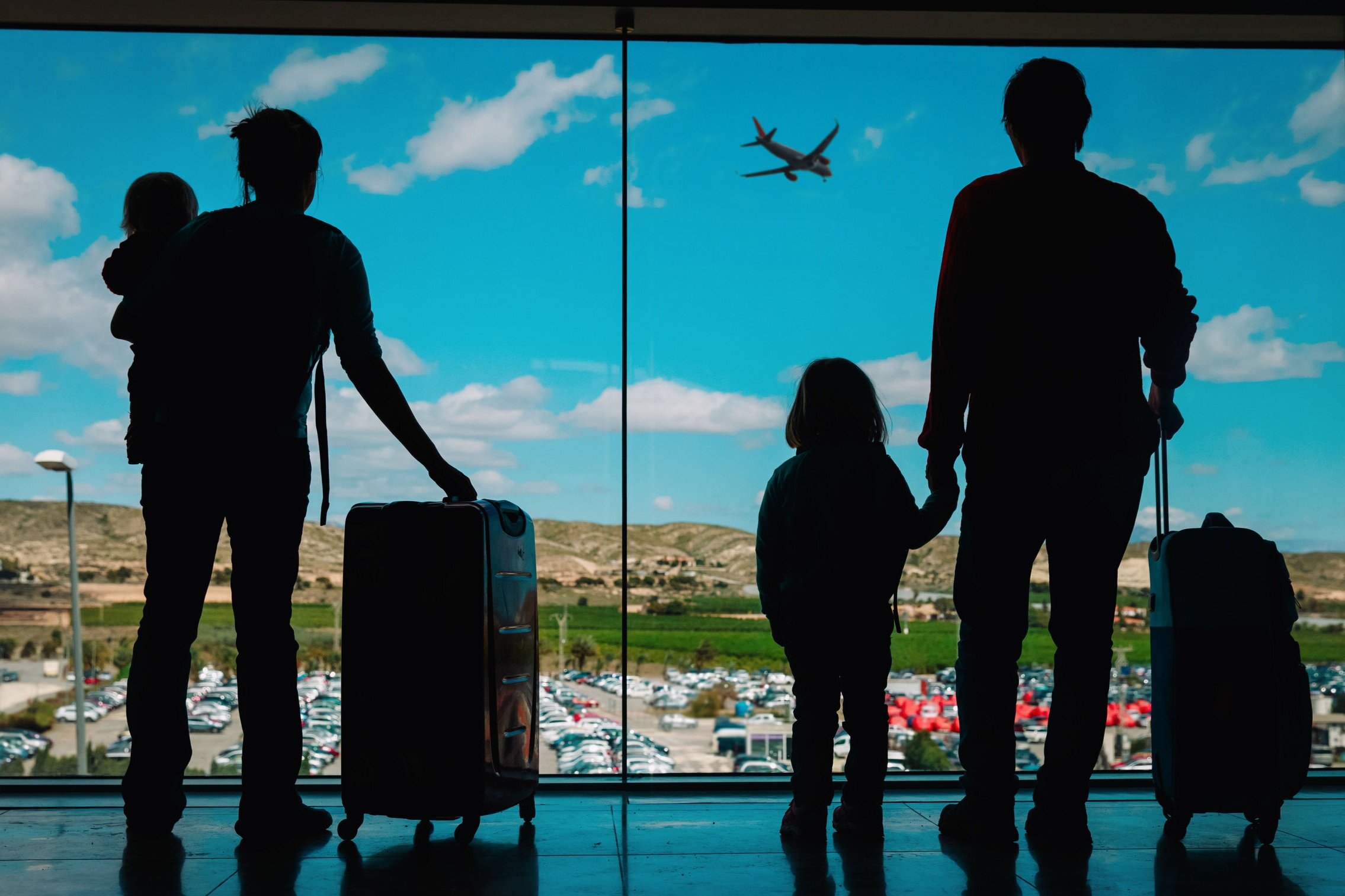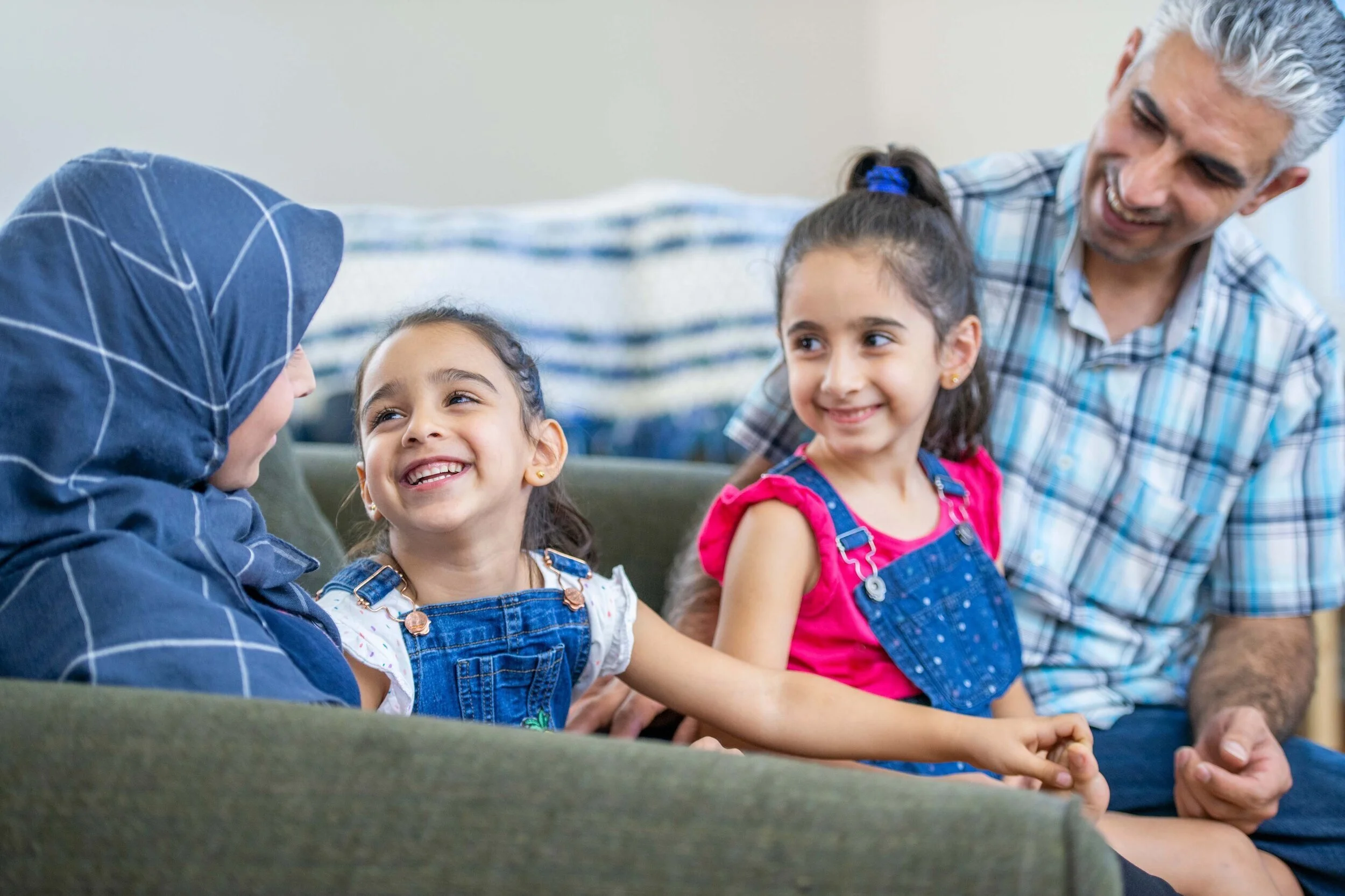Refugees tell of the joys and challenges of moving
*This article is based on advice from TBB alumni and their spouses. We survey candidates regularly (before departure, and up to a year post-settlement) and invite continuous feedback. This helps us learn and improve. To the pioneering people quoted in this piece, thanks for sharing your experiences so openly. This hard-won wisdom is invaluable for new candidates embarking on their own journey.
Refugees live in unstable situations, which can be frightening. Being able to move internationally for work is a precious and exciting opportunity.
However, there is predictability and comfort in the known - even when it's precarious. Moving is stressful, whether you are moving house, moving to a new work environment, or moving to another country. TBB candidates do all three at once! This would be a difficult task for anyone, let alone someone dealing with the everyday challenges that come with being a refugee or displaced person.
“I was worried, nervous and afraid. I was 100% sure this place wouldn’t fit me” says Amir*, a TBB alumnus and Syrian refugee explaining how he felt shortly after arriving in Australia.
Moving brings inevitable change, disruption, and a sense of isolation. But it can also bring adventure, new friends, and a fresh start.
Dealing with homesickness and isolation
Homesickness and loneliness are common for anyone moving to a country with a different language and culture - and can be tougher for refugees. TBB candidates are encouraged to chat about this in advance and work on coping strategies for arrival.
If the language barrier is likely to be an issue, candidates should enrol in language classes and try to find conversational groups to join immediately upon arrival. “English, English, English!” stresses one TBB candidate, “Especially the speaking - watch movies in English; Canadian news channels. Spend two hours every day. Try to understand the news without subtitles. Also, take some online classes while waiting for a visa.”
A buddy of the same nationality can be an asset. In many cases, candidates can be paired with someone who has made a similar move who can help them navigate shopping and transport until they feel confident.
Luckily, technology makes it easy to touch base with friends and family at home. This can help candidates feel grounded and provide an outlet for sharing frustrations and challenges. But spending too much time online can be a barrier to candidates meeting new people and accepting their new home, so it’s best to aim for balance.
Balancing work life and family life
When couples or families move together because one person has secured employment, there can be a disconnect in terms of experiences. The working partner is likely to face very different challenges to their stay-at-home spouse.
“I was so excited to get in and try new things here,” says Amir, “However, I was a bit nervous regarding my family's integration in the new country.” Some new arrivals find themselves caught between two desires - a need to help their family feel safe and comfortable and an eagerness to fit in at work and socially with others. This is tough to navigate.
When Amir arrived in his new office he “had an issue with understanding all the accents at work and felt very embarrassed.” This was tiring and meant he came home exhausted from the effort. However, his wife was experiencing a different problem. “The main challenge I have been facing is the language barrier and this is affecting my social life ...which makes me very depressed,” she explains.
New arrivals are encouraged to spend time together connecting as a family in their new environment. It’s important to keep communication channels open and acknowledge the different experience that each family member is having.
Helping children cope with change
Children can be super adaptable and love the adventure and excitement that comes with moving. Of course they will also experience challenges around unfamiliar language, foods, and surroundings - but will look to parents for cues to navigate these.
The key is to get them into playgroups or schools as quickly as possible so they can connect with other children their own age. They may meet kids who don’t understand the differences in culture, so parents should try to prepare their children for how to respond to that in a positive way. Children will thrive knowing they have a safe and caring environment at home whilst learning social resilience.
A father described that his son's behaviour changed when they first moved. “My son had strange behaviour before he got to school; he wasn’t able to see or play with other kids, so most of the time he was not happy. But this wasn’t the case once he started preschool and connected with kids his own age.”
Many moving families relate similar stories. Once children find others to play and connect with, they settle quickly and enjoy the familiarity of a routine.
Good things take time
TBB alumni say that new arrivals should pace themselves for the long term, rather than feel pressured to tackle everything all at once.
“Don't have unrealistic expectations” advises one TBB candidate. “Learn about the challenges. Know it's going to be difficult at the beginning. Know [you will] have to set goals and not everything is going to be solved in a day.”
Many of the initial challenges that TBB candidates face are simply practical, and will resolve over time: “It was difficult when we first arrived. We didn't have a car. Finding Arabic stores was challenging. We figured everything out now.” Another explains: “In the beginning it was extra hard because my wife and kids didn't have English, so they had to rely on me.”
TBB candidates and their families face unique challenges, and the hurdles will be different for each person moving through the program. It’s a long road, and new arrivals should expect many ups and downs along the way.
Adopt, adapt, connect
It's important for new TBB candidates to understand that they are not alone in their feelings. The strength gained from TBB alumni and others who have trod a similar path can be invaluable.
One partner of a TBB candidate found herself in a rural setting without access to familiar foods or people to connect with. Her husband was happily working; living his dream, and he found her sadness confusing. But she connected with other Arabic women online who had faced similar challenges after moving and related that “we had a nice evening and chatted about different experiences each woman had when moving to Australia.”
Belonging is the key. It’s normal for people who move to feel as though they’ve lost a sense of belonging to their own community, and it’s daunting to make new friends in a new place. But TBB alumni say that the process has also taught them so much, and given them the opportunity to have amazing new experiences. In other words, it’s possible to hang onto your roots and your family’s history and culture, but also become a citizen of the world.
As one TBB candidate puts it, “We have some obstacles still, but life here is full of chances. We have rights. All I need is hard work and I will achieve my dreams”.
To any TBB candidate or family member struggling with any stage of the moving process, please reach out to TBB staff and the TBB alumni network for support. You are not alone. We are all here to lean on and learn from each other.
*Name changed to protect identity


